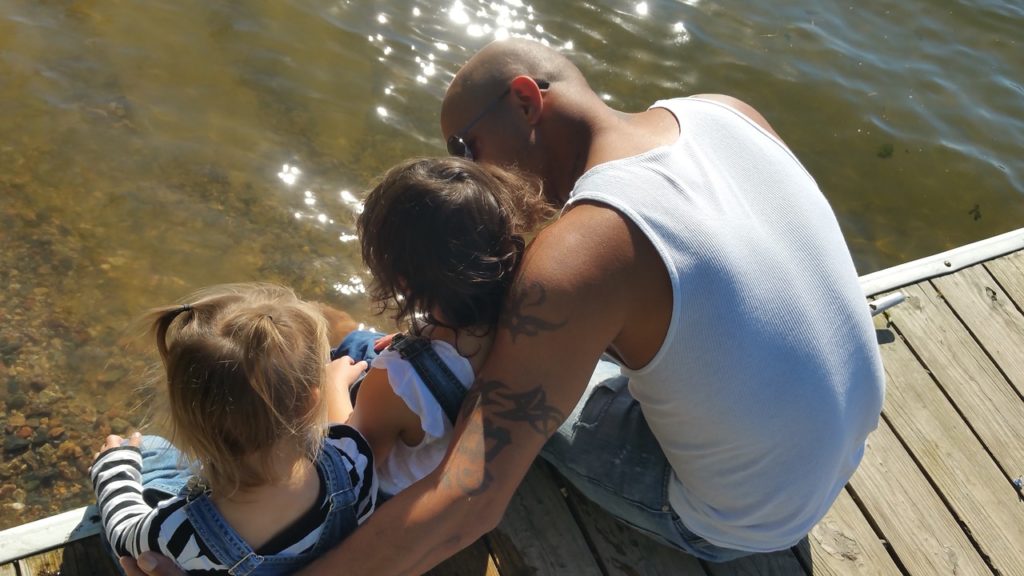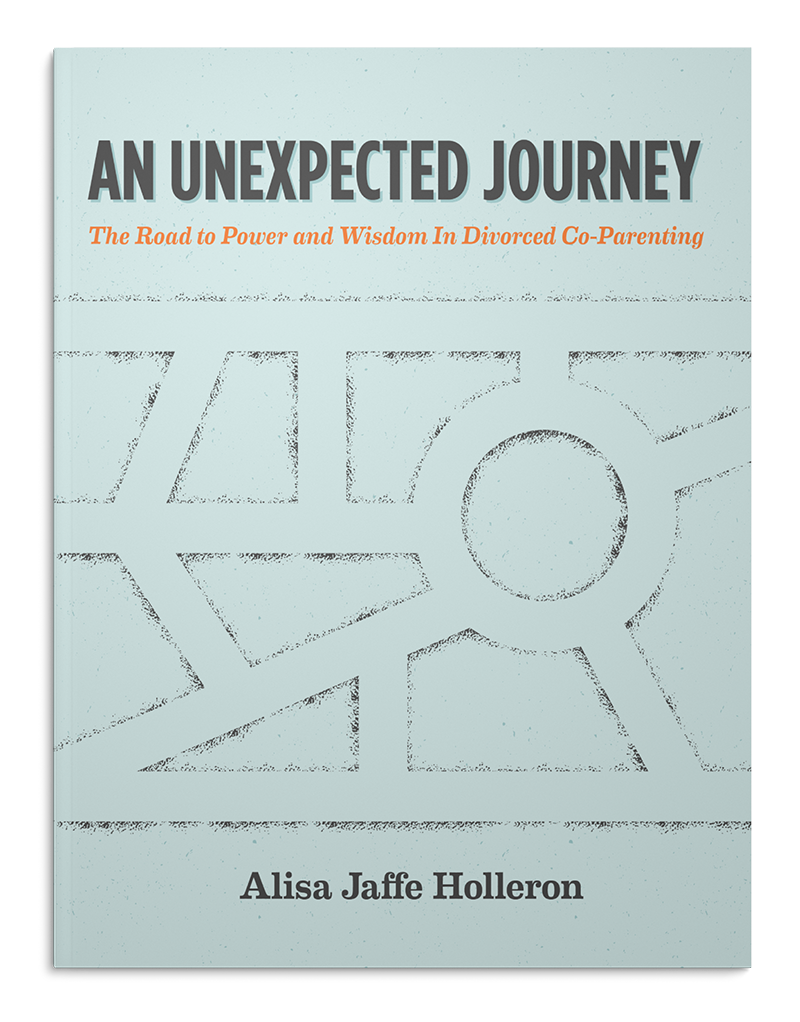We all want to be wise parents, but parenting is emotional business and if your emotions are out of control, you will be anything but wise. Some parents struggle with challenging children. Divorced parents may struggle with challenging co-parents, or both. These challenges often trigger us into difficult emotional states.
We need to be gentle and compassionate with ourselves. Of course we get triggered into difficult emotional states! There is nothing more important to us than our children. When we care so deeply, the emotional stakes are high. When it feels like something is wrong, it is easy to get triggered.
All parents get triggered, and many things can trigger us. Our child is disrespectful. They won’t brush their teeth or they tell us lies. They loses their homework or get a bad grade or things far more serious than that. Our co-parent threatens to take us to court or badmouths us. Whatever it is.
When we get triggered we often react in habitual ways; we lecture, yell and scream, stomp out of the room, shut down, seek revenge, say shaming things or whatever reaction is unique to us. When we react habitually out of emotions we are acting unwisely. We are allowing our emotions to get the best of us. We are allowing our emotions to be in charge, and we all know how badly that works out.
It works out badly because when we are in emotionally reactive states, we lose our ability to be logical, rational and empathetic. We lose our ability to consider the consequences of our actions. We lose access to the faculties that help us do what contributes to our children’s emotional and psychological health. We wind up doing things that are not in their best interest.
When our nervous systems thinks we’re in danger, they go on high alert. Our impulse is to try to stop whatever is happening outside of us (the trigger) because it feels so dangerous. The problem is that usually we’re not in real danger. A child not brushing their teeth, or a co-parent badmouthing us is not real danger. Our minds might make up catastrophizing stories, like my child will never have good hygiene and therefore will never be a success, or my co-parent will make everyone hate me and then I’ll lose my children. Our minds tell us these stories, but often they have very little or no merit.
When there is an ACTUAL threat, a truly dangerous situation, you want to react quickly without thinking or considering things or being deliberate. If the car in front of you slams on its brakes, you want to just react. You don’t want to think about it for a while or gather too much information. That would be to your detriment.
But in most triggering situations, we are not in REAL danger. And when we react as if we are, we act in unwise ways; ways that are detrimental to our children and to ourselves. These situations need all of our faculties on board in order to act in ways that will be effective.
In order to learn how to stop yourself from reacting in ways that will not serve you or your children, it is helpful to look at it in slow motion. What really happens when you get triggered, when you have an emotional reaction? Let’s break it down:
First, the TRIGGER!
Then, WHOOSH! The emotion comes in. It enters your mind and body. It overcomes you and overwhelms you. You are hijacked by it and your nervous system is on full alert and ready to defend.
Then one of two things happen. Either you react habitually or you get ahold of yourself and decide not to act habitually.
The first step in getting ahold of yourself is getting MINDFUL. That means that you become aware that you are in a triggered state. It means that you are able to say: “I’m triggered” or “I’m angry” or “I’m anxious” or whatever it is that you’re experiencing. This step is critical. Why? Because the part of you that is “speaking,” the part of you that is saying “Oh, I am triggered now” is different than the part that is triggered.
LEARN MORE ABOUT MINDFULNESS IN THE ONLINE CLASS “FREEDOM CO-PARENTING”
So now you have two parts. The part that’s triggered and the part that’s NOT triggered (or the mindful part.) Once you establish MINDFULNESS, you have a great resource to work with the emotional state. When you establish mindfulness, you are no longer completely overcome by the emotion. You have your mindful part to help you work with the emotion and help you not react habitually.
Different people use mindfulness differently to work with difficult emotions. Here are some suggestions, but there are many more, and you of course can make up your own!
- Bring your attention to your breath. Notice yourself breathing in and breathing out. Notice that the emotion is there, but try to keep your attention on your breath. Notice where the breath comes into your body. Bring your attention to the sensation of the breath coming into your nostrils and follow the path of your breath into your lungs and then follow the out breath. Bringing attention to the breath helps calm your nervous system down so that you can start thinking rationally again. It likely won’t make the emotion totally go away, but it will firmly establish mindfulness. The emotion is not all of who you are. You do not have to react out of your emotion.
- Notice that the emotion you are experiencing has physical sensation associated with it. Focus on what that sensation is like. Describe to yourself what the physical sensation is. For example “I am feeling anxiety in the pit of my stomach. It feels like a ball of crazy energy that is vibrating.” Whatever it is. We all experience emotion differently. Bring attention to the physical sensation, focusing on the physical experience of the emotion will take your mind away from the story you are telling yourself. It will help you see that you are just having a physical experience, and that you don’t have to buy into the story your mind is telling you.
- Imagine the emotion as a child. I like to imagine anxiety as a scared child. Like a child that is afraid that there is a bogey man in the closet. Imagine that in addition to the child, there is also a wise parent there. The wise parent can comfort the child. The wise parent can say: “I know you’re scared, but I’m here and everything is going to be ok.” You can imagine yourself holding the child. The experience of anxiety, or whatever emotion it is, will still be there, but now you also a have a wise parent that is in charge and making decisions. You are not allowing a scared child to make decisions about what needs to be done.
- Say hello to the emotional state. I like to say: “Oh, hello Anger! (or whatever emotion it is). I see you’re here again! I remember you! You’ve been here many times before!” Saying hello is powerful, because it establishes mindfulness, and reminds you that there is simply an emotion present, and just because there is an emotion present does not mean that you have to act on it.
- Notice that the emotional state is an experience that is not permanent. We have emotions every day. They come and they go. They are not permanent. When they come in, we take them very seriously, as if they will be here forever and they are in total control. But they’re not. Remind yourself again and again: emotions are just an experiences that come in and go out. The older we get the more we know how true this is. We can learn to not take our emotions so gosh darn seriously.
There are many ways to use mindfulness to help yourself bring rationality, good judgment, empathy, and the ability to consider the consequences of your actions back into emotionally intense situations. Learning these kinds of skills will help you be a more effective parent or co-parent. Without these skills, you are like a plastic bag blowing around in the wind, completely at the mercy of your emotions.




